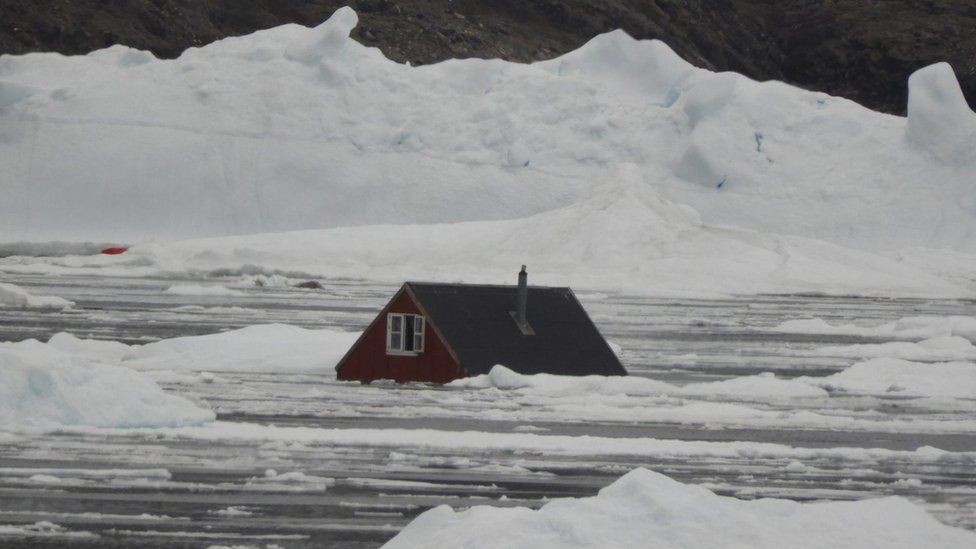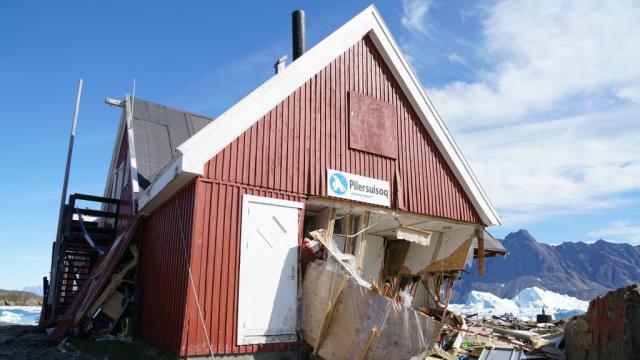Recent Developments on the Greenland Tsunami
In recent days, scientific investigations have shed light on a massive tsunami that struck Greenland, generating significant global interest and concern. This event, which occurred in September 2023, has been linked to a landslide in the Dickson Fjord, resulting in a 650-foot (200 meters) high megatsunami that created seismic waves detectable worldwide.
Background of the Event
The tsunami was triggered by a landslide that occurred in a remote fjord in Greenland. This landslide, described as colossal, caused a series of waves that not only devastated local communities but also produced seismic signals that were recorded globally. The seismic activity lasted for an astonishing nine days, leading scientists to investigate the phenomenon further.
Impact on Local Communities
The tsunami had devastating effects on the village of Nuugaatsiaq, where a previous landslide in 2017 had already caused significant destruction, resulting in the loss of four lives and the destruction of homes. The recent tsunami has raised alarms about the vulnerability of Greenland's coastal communities to such natural disasters, particularly in the context of climate change and its impact on glacial stability.
Scientific Findings

Seismic Signals and Their Implications
Researchers have identified that the seismic signals generated by the tsunami were not typical of earthquake activity. Instead, they were characterized by a long-lasting very low frequency (VLF) signal that indicated the presence of a standing wave in the fjord. This phenomenon is a result of the waves sloshing back and forth, creating vibrations that traveled around the globe.
According to a study published in Science, the tsunami's waves were so powerful that they caused the Earth to "hum" for days. This has significant implications for understanding how landslides and tsunamis interact and the potential for future events as climate change continues to affect glacial regions.
Climate Change Connection
The climate crisis has been implicated in the increased frequency and intensity of such geological events. As glaciers melt and destabilize, the risk of landslides increases, which in turn raises the likelihood of tsunamis. Scientists are urging for more research into the relationship between climate change and geological hazards, particularly in vulnerable regions like Greenland.
Media Coverage and Public Response
The tsunami has garnered extensive media coverage, with major outlets like NBC News, BBC, and The Washington Post reporting on the event. Articles have highlighted the scientific investigations into the tsunami's causes and effects, as well as the ongoing risks faced by communities in Greenland.
Key Articles and Reports
NBC News reported on the 650-foot tsunami and its lasting impact, emphasizing the need for further research into the geological stability of Greenland's fjords.
BBC News detailed how the tsunami "shook the Earth" for nine days, providing insights from scientists studying the event.
The Washington Post discussed the implications of the seismic signals and the potential for future geological events linked to climate change.
ABC News provided a comprehensive overview of the mysterious seismic signals and their origins.

The recent tsunami in Greenland serves as a stark reminder of the interconnectedness of climate change, geological activity, and human safety. As scientists continue to study the implications of this event, it is crucial for communities and policymakers to consider the potential risks posed by similar natural disasters in the future. The findings from this event will likely influence how we understand and prepare for geological hazards in a changing climate.
For ongoing updates and detailed reports, interested readers can follow the links provided to major news outlets and scientific publications.




